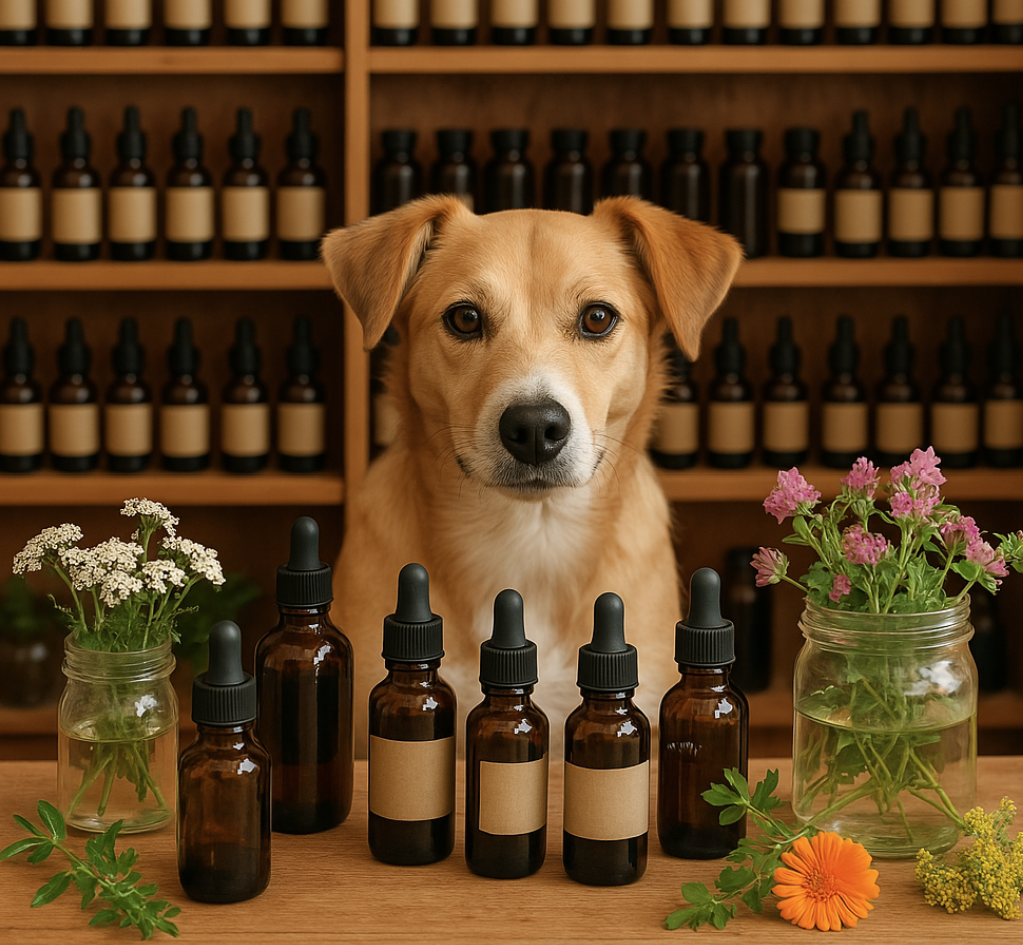Quality Matters In Herbs Too
Why Choosing Quality Herbal Brands for Dogs Matters
Herbs can do amazing things for our dogs—supporting digestion, immunity, detox, calming the nervous system, and so much more. But not all herbs are created equal.
When we choose the cheapest product on the shelf or a random brand online, we might be getting more than we bargained for… and not in a good way.
Let’s talk about why quality matters when it comes to herbal support for dogs.
What Makes an Herbal Product “High Quality”?
Here’s what we look for in a trustworthy herbal product:
Sourcing transparency – Reputable brands will tell you where their herbs come from (e.g., organically grown in the US or wildcrafted ethically).
Testing for contaminants – This includes heavy metals, pesticides, mold, and bacteria. Sadly, these are all too common in lower-quality products.
Proper identification of plant species – You want the correct plant, part, and preparation (e.g., root vs. leaf, whole vs. extract).
Therapeutic potency – Some herbs are barely more than dust in poor-quality blends. Look for brands that standardize for potency or explain their process.
No unnecessary fillers – Especially for dogs, we want to avoid sweeteners, flavors, starches, or synthetic additives.
What Can Go Wrong with Low-Quality Herbs?
Ineffectiveness – If the product doesn’t contain enough active constituents, you won’t see results.
Toxicity – Mold, heavy metals, or improper plant species can be dangerous, especially for small dogs or those with health issues.
Digestive upset – Cheap fillers or rancid carrier oils can trigger tummy trouble.
Allergic reactions – Contaminated or adulterated products are more likely to cause problems.
Choosing Right for Your Dog
Here’s what I usually recommend for pet parents starting out:
Buy from companies that specialize in herbal medicine, not generic pet supplement brands.
Use single-herb products at first, so you can observe how your dog responds.
Stick with organic or wildcrafted options when possible, especially for roots and leaves.
Work with a certified herbalist or pet health coach (like me!) to create a plan specific to your dog’s needs.
Tools That Support the Herbal Work
When using herbs for healing or wellness support, we often see even better results when we combine them with:
Fresh, whole-food diets to help the body absorb nutrients and herbs more efficiently
Essential oils for emotional or topical support
Homeopathy for energetic balancing
PEMF, massage, or acupressure to move stagnation and increase circulation
Dana’s Thoughts
I’ve seen firsthand how the right herb can help a dog thrive—and how the wrong product can set healing back. If you’re investing in your dog’s wellness, invest in the kind of herbs that actually work, are safe, and do what they’re supposed to do.
Want help choosing brands I trust for my own dogs and clients? Join my private client forum for the full guide, including protocols, product suggestions, and real-life case studies.
"Statements in this blog have not been evaluated by the FDA. Educational content only. Not intended to diagnose, treat, cure, or prevent any disease."
"Want even more resources, Q&A, and discussions on nutrition? Join my community forum. Free and Subscription Content."
We recommend Mtn. Rose Herbs

